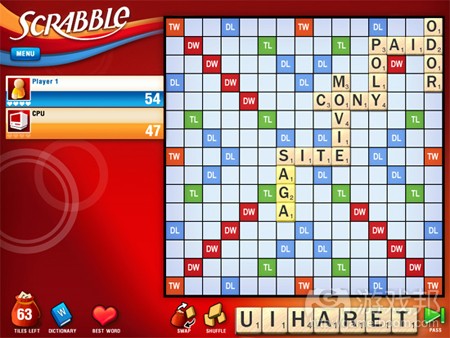趣味性是游戏设计中最重要的内容
作者:Gavin Verhey
我们很容易遗忘游戏设计中最重要的部分,这时常令我感到惊奇。如果所有人在设计时能够记住一个准则,那么我想整个游戏设计领域都会有所提升,某些失败游戏就有可能避免悲惨的命运。
我在与其他开发者面对面坐着讨论游戏机制时,我们总会提到某些内容是否有趣。但是直到某次参加开发会议时,我才意识到趣味性才是游戏最重要的内容。
但我们存在的问题是,往往尝试将趣味量化。在游戏设计中,有时过于注重量化会让你设计的东西失去趣味性。
当你在设计东西时,需要在工作结束后问自己“这是否有趣?”。多数情况下,只有部分人会单纯为了证明自己的能力去玩游戏。
我自己也会选择逃避那些无法从中找到乐趣的游戏,即便我知道自己能够获胜,但是我认为那种体验就像是在游戏中“刷任务”,娱乐根本无从谈起。
《Scrabble》便是个绝妙的例证。我很擅长驾驭文字,而且有推敲用词的习惯。于是,玩这款游戏便会让我感到很痛苦。我会花上15分钟分析界面布局,分析最适合填上的词,但是这样玩游戏对我来说毫无趣味性可言。这也是为何我不再经常玩《Scrabble》的原因,虽然这是我擅长的方面,但是游戏过程并不有趣。
当你在设计游戏的时候,很难把控趣味性。游戏趣味性的感觉因人而异。但是,在设计时你需要进行更深层次的研究。你必须在自己体验游戏时想到其他人会有何反应,在自我感觉和玩法感觉间取得微妙的平衡。从总体上说,《Scrabble》确实是款有趣的游戏,只是不适合我这种人群。
我相信,《万智牌》的成功得益于Wizards提升游戏的易用性和直觉性,这使得多数人能够体验到游戏中的乐趣。此外,该公司随后还制作了许多有趣的卡牌。改变设计规则和想法后,更多的玩家感觉到了游戏的趣味性。
当我们坐下来玩游戏时,除了正规的比赛外,我想每个人的目标都是享受快乐时光。如果游戏(游戏邦注:或纸牌)其他方面都做得很好,唯独趣味性不足,那么其仍旧比不上那些趣味性十足但其他方面表现不佳的游戏。(本文为游戏邦/gamerboom.com编译,拒绝任何不保留版权的转载,如需转载请联系:游戏邦)
Having Fun: Why Fun Matters
Gavin Verhey
It often surprises me how easy it is to forget one of the most important aspects of game design. If everyone who ever designed just kept one principle in mind, I think the world of design – and likely the fate of some failed games – would be much better on the whole.
Let me back up to when I started thinking about design with this in mind.
For a few months, I’ve been helping develop a game with Jonathon Loucks for Skaff Elias and a few others. What immediately struck me as I entered headfirst into the fray is how we talked about the game.
At first, I didn’t notice. I’d be sitting across from Jon, talking about mechanics, and we’d mention how fun or unfun something was. But, as a pair of individuals who are around each other a lot and who regularly speak in these terms, it didn’t soak in immediately. It wasn’t until I was in a development meeting and Skaff started talking about how “fun” something should feel that the most obvious thing hit me upside the head.
Being fun is important.
Now, this seems obvious. We all try on some level. However, the thing about fun is that we often try and quantify it. Years of working in writing taught me to weed out terms that weren’t descriptive enough. The eyes of my poetry and prose professors unleashed invisible yardsticks on your wrists if you so much as mentioned “the flow” of a poem. After all, flow on its own meant nothing. There was always a way to pull out exactly what you liked with an increased description. However, in game design, sometimes too much pulling apart and quantification leads to stripping fun away from whatever you are designing.
But fun? Sometimes fun is just… fun. There’s not always good reason to describe it – or even a need to.
When you design something, at the end of the day, you need to be able to stand back and ask yourself, “Is this fun? Is this actually enjoyable?” For the most part (yes, I realize there are always exceptions) only one player group will want to play something simply because it proves themselves as people who can correctly identify value – the Spikes.
Even then, as someone who is partially a spike, I will often shy away from things I don’t find fun even if I know I can win with/at them simply because games become a grind otherwise.
A great example is Scrabble. I’m pretty good with words and have a propensity to figure out which words to put where. The problem? It’s excruciating to do so! I’ll look over a board, tank for 15 minutes, analyze the situation from every possible angle, and come out with a good play – but it’s absolutely no fun for me to do so. That’s partially why I don’t play Scrabble as often anymore – it just isn’t fun despite it being something I can be good at.
The problem is that’s hard to judge when you design something. There are competitive Scrabble players who thrive on figuring out the perfect word. Perhaps I am an oddball spike exception. However, what’s important is not to project your sense of fun onto other players’ sense of fun. Fun is normally something you have to look on an individual level. In design, though, it’s something you have to look at on a deeper level. You have to be able to look at what you’re playing and see how it applies to other people who haven’t even tried it yet. Will Timmy find it fun? Will Johnny find it fun? Will Spike find it fun? It’s a tricky balance. Scrabble is definitely a good, generally fun game overall, even if I personally don’t find it fun, because it has something for each group.
I believe Magic has had increased success lately precisely because Wizards has made the game more accessible and intuitive, which, in turn, make the game more fun to play for most people. Additionally, they have been making a lot of fun cards lately. It hasn’t always been this way. Fortunately, the days of Time Spiral are over, some new design rules and ideals are in order, and the game is a lot more fun to a wider group of players as a result.
When we sit down to play a game, outside of major tournaments, I think everyone’s goal is to have a good time. If a game (or card) does everything else well but still isn’t fun to play it’s still probably going to be behind something that is fun to play even if it does a couple of other things worse.
I have a lot to say on the topic of what is and isn’t fun, and there’s far too much to fit into one blog post. Consider this an introduction to the “Having Fun” series and expect future posts will go into specific details in depth. I look forward to talking to you then! (Source: Design Space)
下一篇:关于游戏界面设计的10项黄金准则








































 闽公网安备35020302001549号
闽公网安备35020302001549号